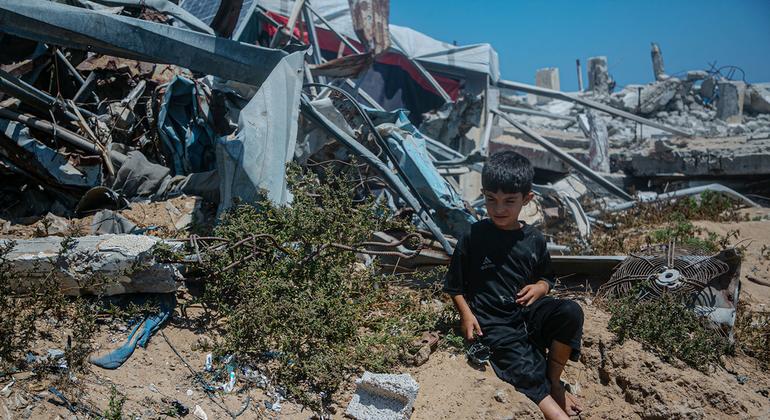Here’s the translation into American English:
—
This Tuesday, Thameen Al-Kheetan, spokesperson for the Office of the High Commissioner for Human Rights, warned about the severe risk of hunger looming over Gaza. During a statement in Geneva, Al-Kheetan attributed this crisis to the Israeli government’s policy of blocking humanitarian aid, indicating that despite international efforts, the aid coming in remains insufficient to prevent widespread famine.
The situation has deteriorated in recent weeks, and the UN reported on Monday hunger-related deaths, many of which were among children. Al-Kheetan also confirmed that numerous displacement orders issued by the Israeli military have forced hundreds of thousands of Palestinians to move to the Al-Mawasi area, where living conditions are extremely precarious, lacking access to food, water, electricity, and shelter.
The quest for humanitarian assistance has come at a great cost, revealing that since May 27, 1,857 Palestinians have been killed in their efforts to obtain food. Most of these deaths are attributed to the Israeli military amid a militarized distribution of aid supported by the United States and Israel.
Jens Laerke, spokesperson for the Office for the Coordination of Humanitarian Affairs, emphasized the devastating effects of the Israeli prohibition on the entry of materials for shelters, despite recent announcements suggesting a potential lifting of that restriction. So far, the UN and its partners have been unable to receive the necessary materials due to the complexity of customs permits.
It is estimated that at least 1.35 million people in Gaza require shelter, while existing tents are in poor condition due to constant use and exposure to the elements. Many of the required materials fall under the “dual-use” regime, complicating their entry into the region.
The situation is exacerbated by the imminent expansion of Israeli military operations in Gaza City, which could force thousands of people to move to already severely overcrowded areas. Al-Kheetan warned of the serious consequences this could have for the civilian population, alerting to a heightened risk of mass displacement, more deaths, and imminent suffering in the Strip.
Finally, the spokesperson stressed that the most vulnerable groups, including children, women, people with disabilities, and the injured, are those who suffer the most from this developing humanitarian crisis.
—
via: MiMub in Spanish










